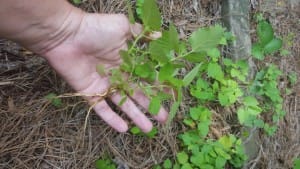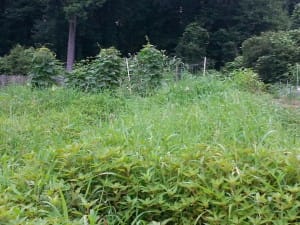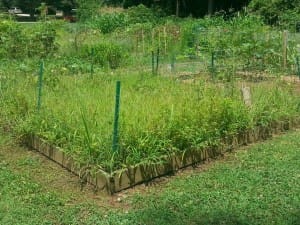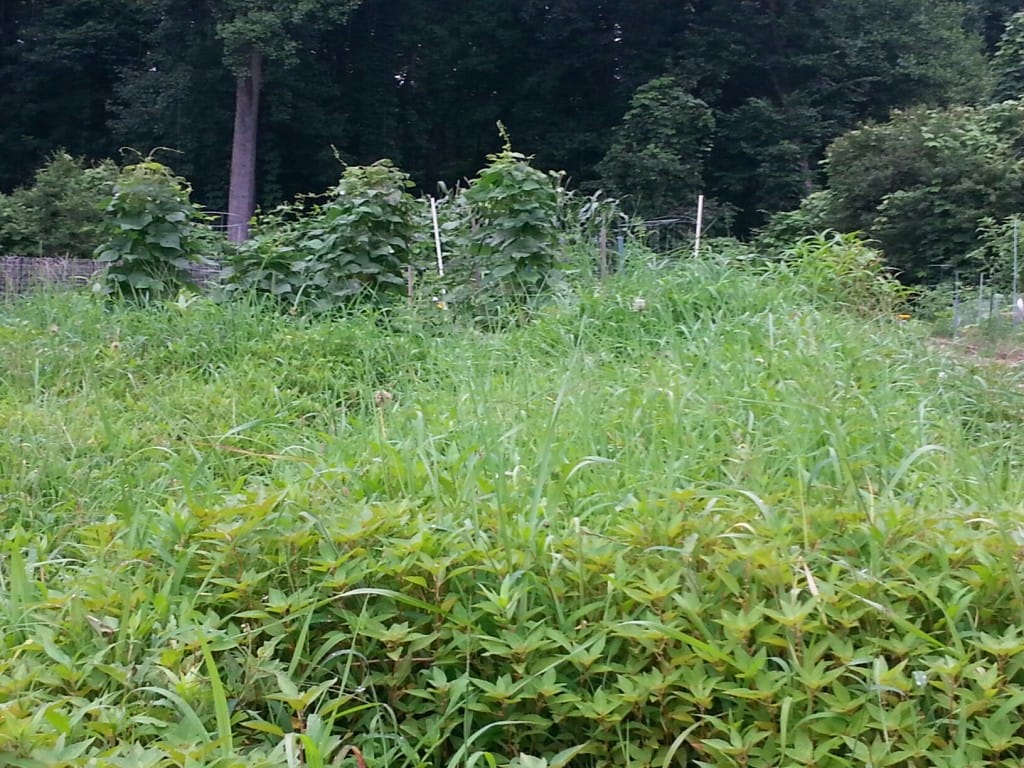All of Georgia has seen a large amount of rain this summer. Rain is great for our crops and also great for weeds and if you have gotten lazy with the summer heat your plots may have more weeds than crop. You are not alone! This may be a great time to review best management practices for weed control.
Weeds can be a big problem in a community or school garden. A very big problem. Knowing how to weed correctly will make this job less of a headache. An informal poll was taken and we asked experienced gardeners to give their top three rules of weeding and we present them here:
Rule #1: Get the roots out.
If you just remove the leaves above ground chances are the weeds will come back and you will need to perform the same weeding chore over again. Many perennial weeds grow from underground roots and tubers. Those need to be removed as well.

Rule #2: Remove the weeds before they make seeds.
If your weeds are allowed to flower and make seeds your work will get much harder. Weed plants can make an incredible amount of seeds. For example, common chickweed can produce 800 seeds per plant. Dandelion flowers can make 40-100 seeds. Crabgrass can produce 53,000 seeds per plant and pigweed can produce over 200,000 seeds per plant. Don’t let those weeds flower!

Rule #3: Don’t let weeding get out of hand.
If you don’t routinely remove weeds you could be looking at a plot of weeds that seems overwhelming to tend. Your vegetable production will suffer as the weeds take up the water, nutrients, and space that should be used for your plants. And, it will take a lot of initiative to start the long process of taking back that space from the weeds.

Knowing what weeds you have could be helpful in coming up with a long-term weed management plan. Your local UGA Extension agent can help with weed plant identification and help you find strategies to minimize weed issues.
Happy Gardening!
